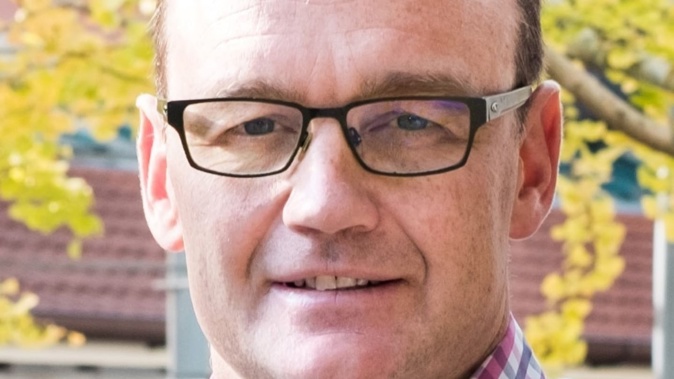
Already facing a potentially significant court decision on academic freedom, the University of Auckland is now involved in a new employment dispute.
The University of Auckland is dealing with another employment dispute over academic freedom, this time with controversial researcher and “Plan B” founder Dr Simon Thornley.
The doctor and public health lecturer has taken his employer, university vice-chancellor Dawn Freshwater, to the Employment Relations Authority (ERA).
It comes as the Employment Court determines a complaint by high-profile microbiologist and science communicator Dr Siouxsie Wiles, whose case against the university was heard last year.
The basis for Thornley’s dispute is not known. He and the university declined to comment.
But court documents suggest his complaint relates to academic freedom, which is also at the heart of Wiles’ case.
The dispute’s progression to the ERA indicates the university’s efforts to resolve his dispute directly or through mediation had failed.
Thornley’s employment dispute was revealed in an application by his lawyer for transcripts of Wiles’ Employment Court hearings.
The application said Thornley was seeking all references to himself and all references to academic freedom made by university witnesses in Wiles’ case. Those references could be directly relevant to his employment dispute, his lawyer Nathan Batts said.
Thornley gained attention during the Covid pandemic as one of the few public health researchers to oppose the Government’s Covid elimination strategy. He was one of a group of academics who outlined an alternative pandemic response under the name “Plan B”.
He later questioned the efficacy of Covid vaccines and was an expert witness in a court case which challenged vaccine mandates.
Thornley - who had previously specialised in the links between scabies and rheumatic fever - has been privately and publicly criticised by his university colleagues for his positions on the Covid response and vaccines.
During Wiles’ hearing, the court heard colleagues were concerned he was undermining the country’s vaccination efforts.
University colleagues later demanded Thornley retract a journal paper which incorrectly stated 80 to 90 per cent of pregnant women would miscarry if they received the Covid vaccine. The paper was retracted.
Wiles’ Employment Court case was closely watched because of its potential implications for academic freedom in New Zealand. It could also clarify to what extent universities were responsible for external threats against staff, like social media harassment.
In a three-week Employment Court hearing in November, Wiles accused the university of failing to protect her from threats and harassment which followed her public commentary on Covid and vaccination.
The university’s lawyers argued academic freedom was not “unfettered” and had to be balanced against other responsibilities like health and safety.
They rejected Wiles’ claims it had silenced her or told her to “pull back” from public commentary on Covid. University leaders had, however, raised the “manner” of some of her social media commentary.
They also argued the university cannot control all threats - especially those made on social media - and it was doing its best to minimise and manage them.

Wiles, a microbiologist and former New Zealander of the Year, took the University of Auckland to the Employment Court last year.
Thornley was mentioned by Wiles and other witnesses on several occasions.
Wiles told the court she received abusive messages after Thornley publicly called her a “liar” and invited members of anti-vaccination group Voices for Freedom to one of her public talks at the university.
She also felt the university had an inconsistent approach to managing its employees, saying she had been told to rein in her public commentary while Thornley was given relative freedom.
Another academic at the university, physics professor Shaun Hendy, also took action against the university alongside Wiles but resolved his dispute when he left to co-found Toha Science in 2021.
Following the Employment Court hearing, more than 100 academics at the University of Auckland signed an open letter saying the leadership had failed to protect high-profile staff.
This story was originally published on the Herald, here
Take your Radio, Podcasts and Music with you









